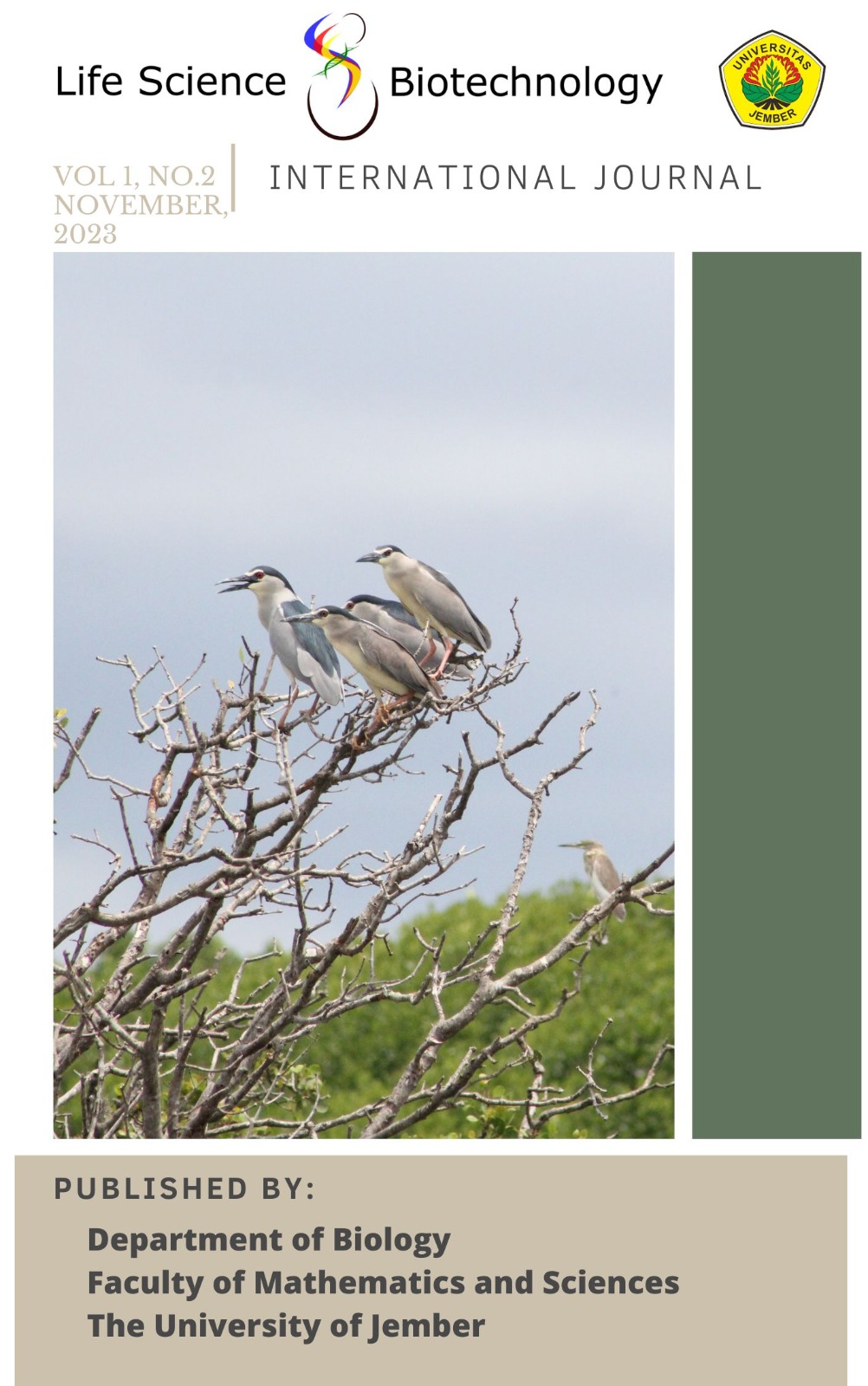Salmonella typhimurium injection as an immunostimulant: Study on chickens (Gallus gallus domesticus)
Abstract
Salmonella is a gram-negative bacteria commonly found in poultry-based products such as eggs and meat, which can affect quality and human health. The presence of these bacteria in poultry management can be traced to feed, water, substrate, and interactions with the environment. This study aims to investigate at the immune system of the avian at the age when the immune system begins to be produced independently through injection of S.typhimurium colonies. Salmonella culture at a density of 10-8 and 10-12 is injected into the digestive tract, and the increase in body temperature is measured immediately after injection. Two weeks later, an analysis of leukocyte differentiation is carried out. We found that salmonella injection affected body temperature and the rate of increase in body mass, both based on treatment and sex. This indicates that the immune system has worked even though the leukocyte differentiation indicators have not shown significant results. Chicks at the age of one month are able to show an immune response to bacterial infections through self-defence mechanisms. Further research needs to be carried out to understand whether leukocyte differentiation stimulates leukocyte variation with age.
Published
2023-11-07
How to Cite
LELONO, Asmoro; SURYA, Rizky.
Salmonella typhimurium injection as an immunostimulant: Study on chickens (Gallus gallus domesticus).
Life Science and Biotechnology, [S.l.], v. 1, n. 2, p. 33-40, nov. 2023.
ISSN 2988-4713.
Available at: <https://jurnal.unej.ac.id/index.php/LSB/article/view/43625>. Date accessed: 22 dec. 2024.
doi: https://doi.org/10.19184/lsb.v1i2.43625.
Section
Articles





